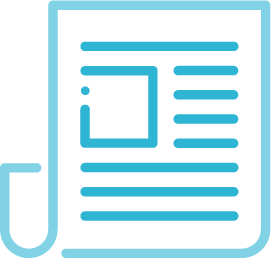
 Never Miss an Update. Sign Up for Zosi’s e-Newsletter.
Never Miss an Update. Sign Up for Zosi’s e-Newsletter.
If you have any question you can ask below or enter what you are looking for!
Perform Thorough Risk Assessments Preventing foreign material in your production begins with robust risk assessments of your delivery and storage areas, production lines, building and facility perimeter. Don’t rush and be sure to pay attention to the details. Potential risks include loose floor aggregate, caulking in the ceiling or wall panels, overhead lights, nuts, bolts […]
In the dynamic landscape of food processing, ensuring the highest quality and standards is a non-negotiable. As the demand for top-notch control and management processes continues to rise, selecting the right Better Process Control School (BPCS) training becomes paramount. In this blog post, we will uncover 3 reasons why Zosi Learning is the best place […]
Effective internal audits should never be conducted by a single individual. Instead, your facility must assemble a multi-disciplinary team of at least two or more individuals to conduct robust internal audits. The size of the internal audit team always depends on the size of the operation. Team members must possess foundational internal audit training. This […]
Are you thinking about becoming a PCQI? Does someone on your team to need to take PCQI training? Meet our lead instructor, Jeff Chilton, as he discusses what makes a PCQI successful, the key knowledge a PCQI needs and how he thinks training should be approached. Intertek Alchemy is excited to share that Jeff Chilton, VP […]
In food production, risks are everywhere. As discussed in our prior article, risk assessment. This step helps identify suppliers that need the most scrutiny due to their higher threat level. There are three critical steps in this process. Develop a risk rating system toevaluate how much you buy from a single supplier, their costs, reputation, and […]
In the food industry, leaders must create and maintain a food safety culture that empowers teams to identify and respond to issues before they become serious problems. The most effective path toward this culture is through a risk mitigation mindset. Risk mitigation is the process of understanding certain risks and threats, accepting that they exist, […]
At a time when the world’s food supply remains fragile and unpredictable, a new generation of food defense professionals is emerging. Many food professionals are taking on this role for the first time or with limited experience. Others lack historical knowledge that left with colleagues during the great resignation. These employees might have experience with […]
Regulations are essential in protecting the quality of foods everywhere. But they can only go so far. Food safety can only truly be effective when it’s part of a mature food safety culture. Part of that culture involves understanding who is responsible for food safety and why it’s important. Some frontline workers might say it’s […]
Intertek Alchemy is excited to announce a new online food safety culture training program for food industry leaders that builds and maintains an informed culture coalition within their organizations. The unique solution includes GFSI-based food safety culture instruction, complimented with a best practice case study and a food safety culture gauge that provides custom action […]
When you look at it from the perspective of ISO 19011 – the guidelines for auditing management system – an internal audit can be defined as a systematic, independent, and documented process for obtaining audit evidence and evaluating it objectively to determine the extent to which the audit criteria is fulfilled.
Hazard Analysis and Critical Control Points (HACCP) plans are the backbone of any food safety program. They prioritize and control potential hazards in food production for the entire food supply chain.
Most consumers are generally confident food manufacturers are taking every possible precaution to ensure the safety of the food they put on their tables. Inspections, regulations, and best practices can go a long way to keeping foods safe. But one of the biggest threats remains from within.
 Never Miss an Update. Sign Up for Zosi’s e-Newsletter.
Never Miss an Update. Sign Up for Zosi’s e-Newsletter.